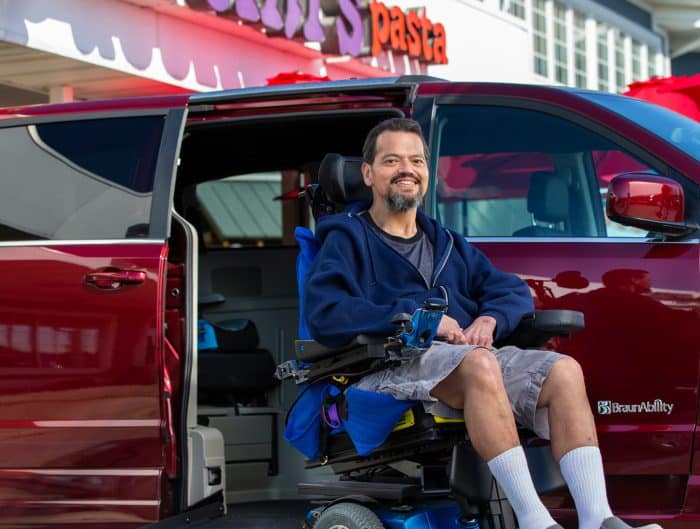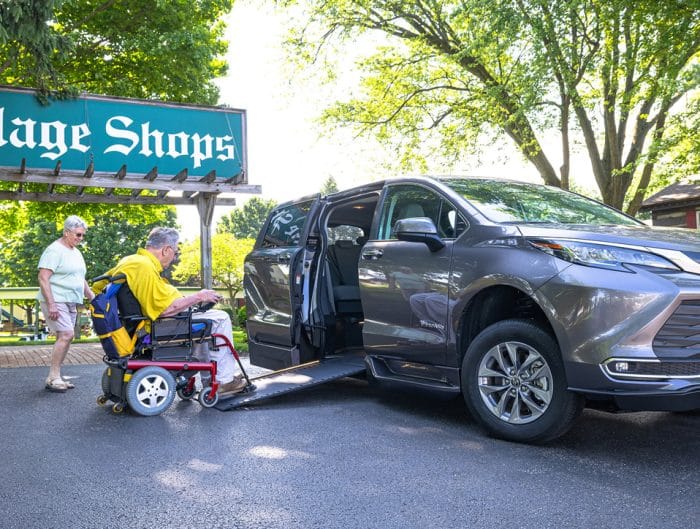Then one afternoon he went to a wheelchair-skills session at Stoke Mandeville hospital, organized by The Back Up Trust. He learned a variety of practical skills and was inspired by his trainer who seemed at one with his wheelchair. Gradually Rushby-Smith rebuilt his ambition and realized he could get back to doing the things he loved in the great outdoors.
Five years later, Rushby-Smith is is taking the skills and confidence he gained through the program and sharing it with others as a Back Up wheelchair-skills instructor. Working with all 13 spinal units in the UK, they help paralysis patients from ages 6 – 96. The program strives to teach the basics such as pushing forwards, backwards and turning, as well as more complex moves such as pushing with one hand, negotiating ramps and curbs, and going up and down stairs.
“Numerous studies have shown the value of an active life to the long-term physical health of wheelchair users, but there are also important psychological implications to the role of confidence building. Developing independence is surely the first step towards rejoining wider society, and going back to work,” he says.
Rushby-Smith knows what it feels like to not be able to see beyond what you can’t do, so he is inspiring participants to realize their potential and rethink what the future might hold. Once you learn the moves, life in a wheelchair isn’t as difficult as you might expect.
What was your most challenging obstacle in learning to maneuver a wheelchair? How did you overcome?





Leave A Reply